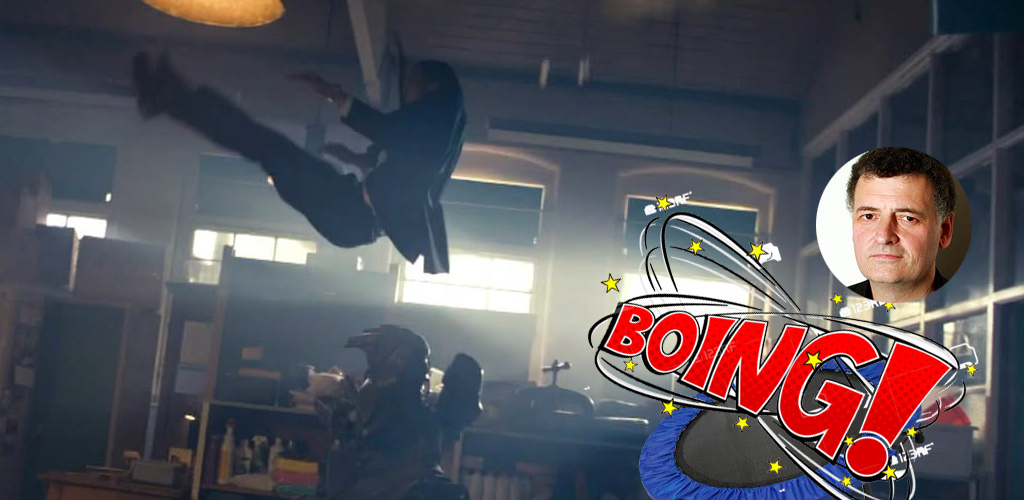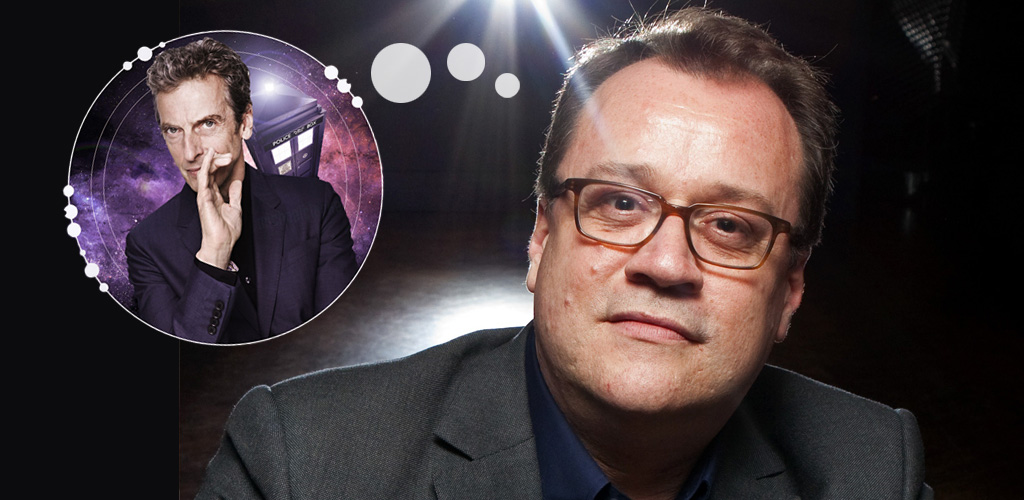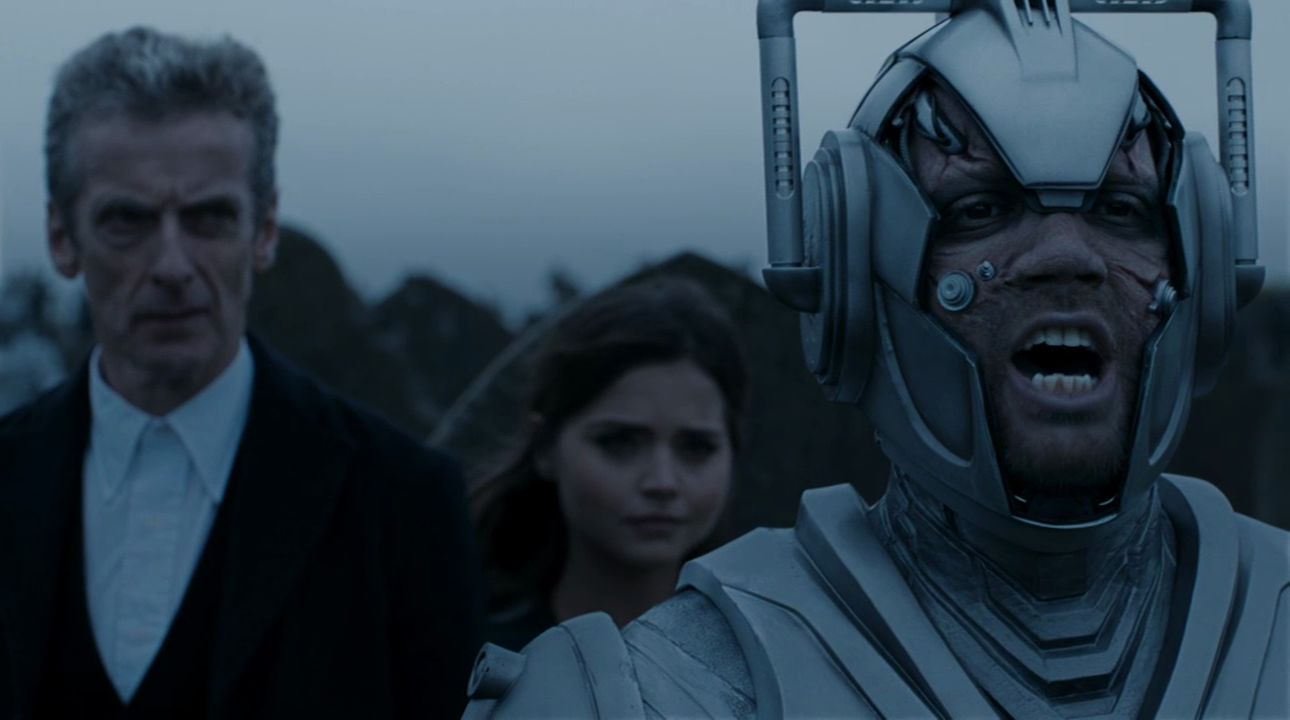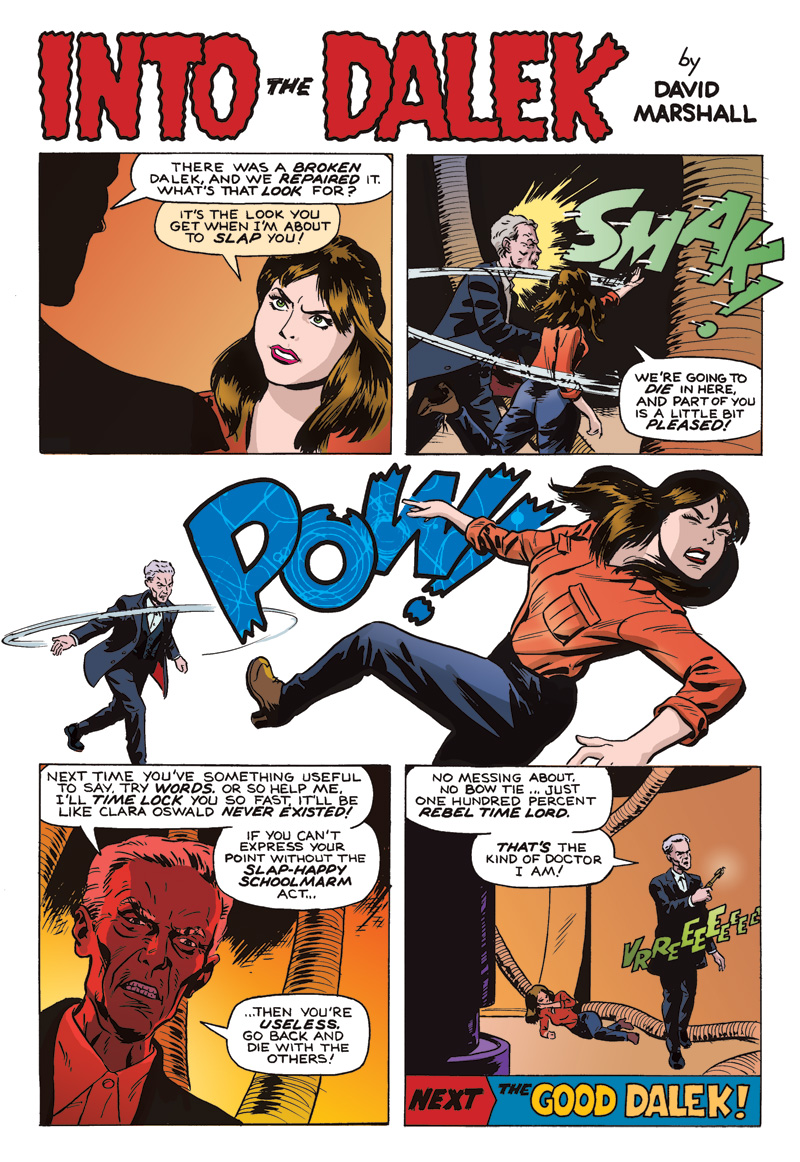Steven Moffat has been the showrunner and head writer of Doctor Who since 2010, when Russell T Davies left the show. The first Doctor that he wrote for was Matt Smith, and he continued in the 8th season with Peter Capaldi. As a writer under Davies, Moffat wrote award-winning stories: “The Empty Child”/”The Doctor Dances,” “The Girl in the Fireplace,” “Time Crash,” and “Silence In The Library“/”Forest of the Dead.” Since running both Doctor Who and Sherlock, critics say his work suffers from being spread too thin.
Most of Moffat’s episode endings don’t make sense. For instance, in the very beginning of “Listen,” The Doctor is writing with a piece chalk. When he puts it down, the chalk disappears and the word “listen” is written on a chalkboard. This is supposedly written by the “perfect hider,” a monster The Doctor is speculating about that causes mysterious events seen later throughout the episode. Later on, The Doctor states that everyone throughout history has the same dream, at some point in their lives, that is caused by the “perfect hider” somehow. In the end the truth is revealed: there was never a monster. The dream was caused by Clara Oswald, who grabbed The Doctor’s leg as a child in the night and gave him that dream. And…I guess gave everyone else the dream too. How can this even happen? Unless Clara grabbed every single person’s leg in the universe, it’s impossible. This entire ending is just one big plot hole.
Another problem I see in Moffat’s writing is that some of the episode subplots are entirely messed up. As an example, I will be using the episode “The Caretaker” (co-written with Gareth Roberts). The Doctor was trying to capture the Skovox Blitzer by placing devices around the school to send it billions of years in the future. If The Doctor really wanted no one to notice the devices he placed to trap the monster, he probably shouldn’t have put flashing green lights on them. And if he really needed those lights, he could have at least told the school staff not to mess with them. And Danny Pink, who removed the devices from where they were placed, shouldn’t mess with things in the first place, especially if he doesn’t know what they do. And when they finally do encounter the monster, towards the end of the fight when The Doctor is preparing the analog for the Skovox Blitzer, Danny runs at the robot and jumps over it to distract it so it doesn’t shoot The Doctor. The robot (instead of turning around) could have just shot The Doctor first then dealt with the rest of them. And there was DEFINITELY a trampoline under Danny in that scene.
And on top of that are the speeches. Moffat apparently loves writing completely useless, overly sappy speeches. Poor Peter Capaldi! In the episode “Into the Dalek,” after The Doctor repairs the Dalek, he acknowledges the fact that all he did was fix it. Clara then uses this time to yell at him to try harder. However, the way she did this is in an incredibly long and drawn out cliched speech. The result would have been exactly the same had she just told him not to give up. The only reason for that speech is to waste our time and torment the actors. I think they should just remake the classic Doctor Who episodes with today’s special effects. Then, Steven Moffat can stop ruining the show.




